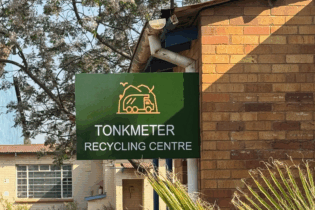Improved working conditions recognition and inclusion are key
Among some of the demands waste pickers called on the government to ensure that they are involved in waste management related projects as they are being planned and developed, and not only when implementation takes place. The waste pickers also asked to be recognised at the municipal level and for the municipal waste management officers to meet with them at least once every quarter so that they understand their needs. Regarding improved working conditions SAWPA requested that government update Landfill licences to allow for the safe organised salvaging of waste as stipulated in the Waste Act 2008, section 51.1.(i).“We do not want to remain working on the landfills or streets forever. We believe that we should be given an opportunity to play a central role in terms of waste recycling in the country,” SAWPA said the statement.
“Throughout South Africa, Waste Pickers are working towards increasing the number of cooperatives to secure their livelihoods and to ensure that they, and not private individuals and businesses hold the wealth that we create through our work.”






